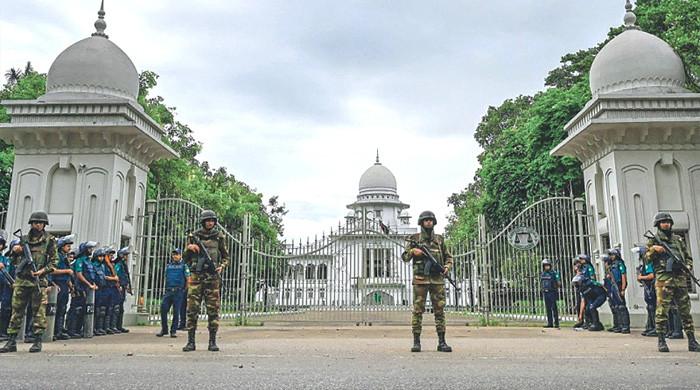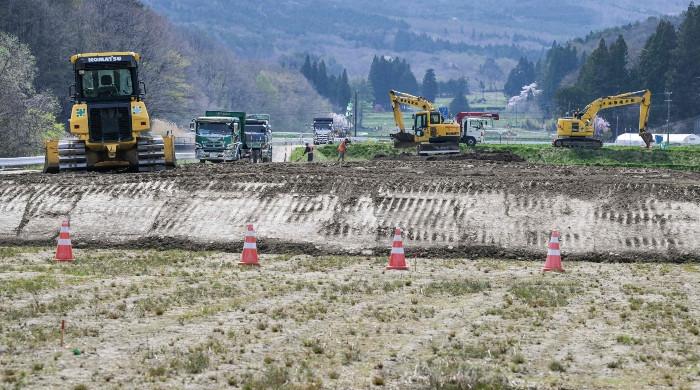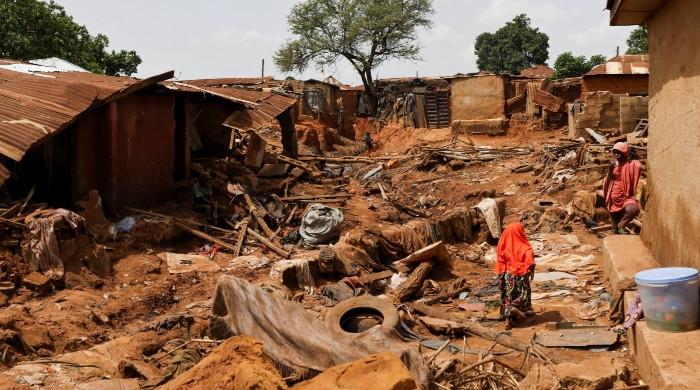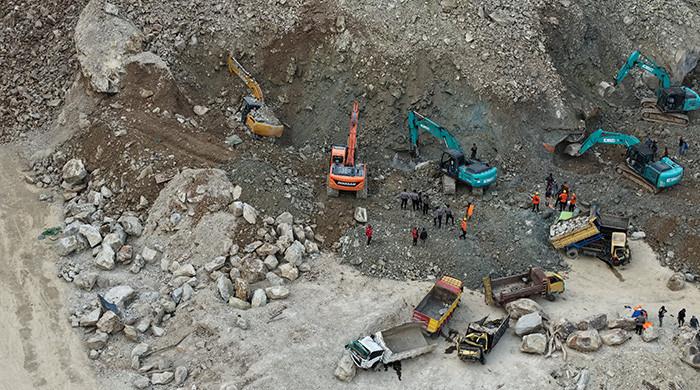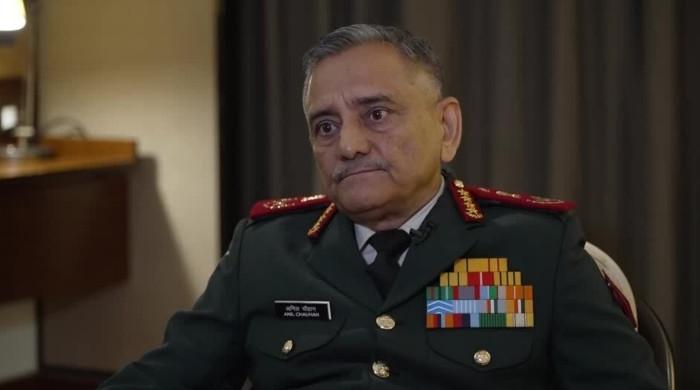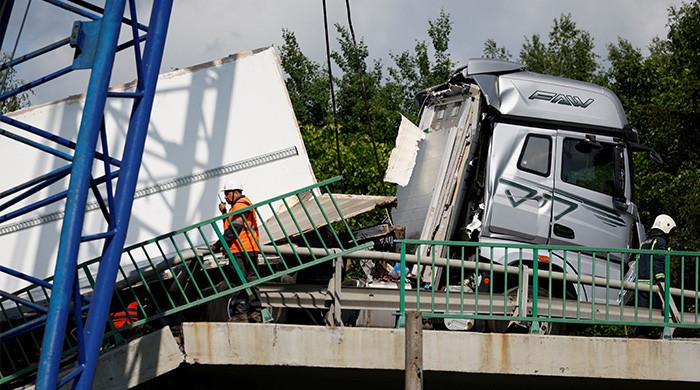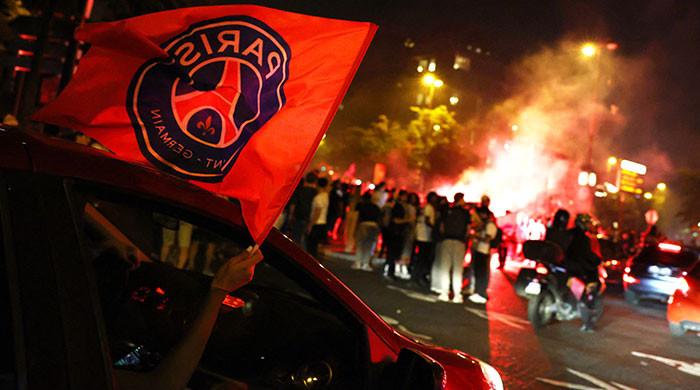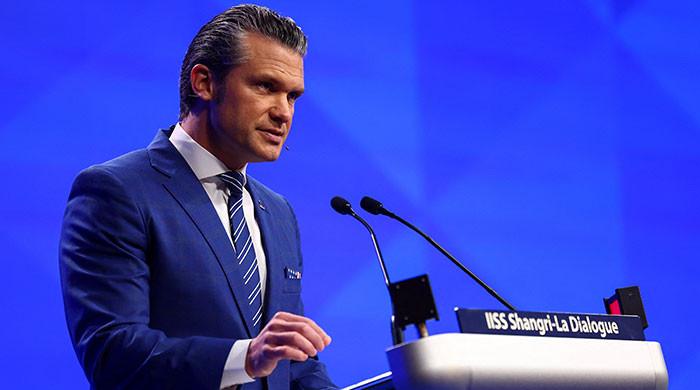Trump throws fate of Iran deal to Congress
Trump is also expected to levy limited sanctions against the Revolutionary Guards
October 13, 2017
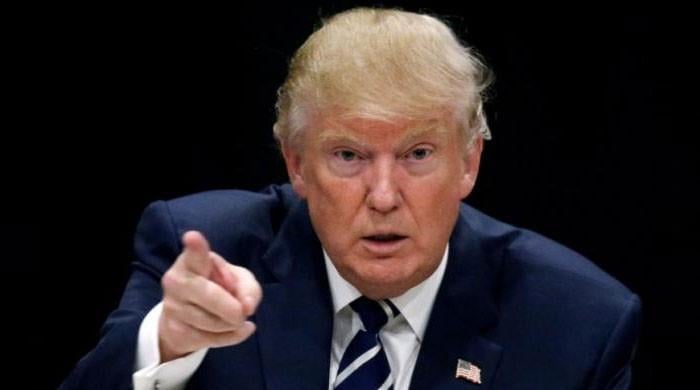
WASHINGTON: President Donald Trump will unveil a more aggressive strategy to check Iran's growing power Friday, but will stop short of withdrawing from a landmark nuclear deal or declaring the powerful Islamic Revolutionary Guard Corps a terrorist organisation.
During a speech at the Diplomatic Reception Room of the White House, Trump is expected to declare the 2015 agreement - which curbed Iran's nuclear program in return for sanctions relief - is no longer in the US national interest.
Officials say he will not kill the international accord outright, instead "decertifying" the agreement and leaving US lawmakers to decide its fate.
Trump had repeatedly pledged to overturn one of his predecessor Barack Obama's crowning foreign policy achievements, deriding it as "the worst deal" and one agreed to out of "weakness."
The agreement was signed between Iran and six world powers - Britain, China, France, Germany, Russia and the US - at talks coordinated by the European Union.
It stalled Iran's nuclear program and marginally thawed relations between Iran and what Tehran dubs the "Great Satan."
But opponents, and even some supporters, say it also prevented efforts to challenge Iranian influence across the Middle East.
In his speech, Trump will rail against Iran's "destabilizing influence" in the Middle East, "particularly its support for terrorism and militants," according to a fact sheet released by the White House.
The strategy will seek to shield Israel from Iran's "unrelenting hostility" and counter the threat to all US interests and allies from Iran's proxy forces, ballistic missile development, and eventual nuclear ambitions.
Trump has railed against the deal since he was a presidential candidate, and told aides earlier this year he will not recertify it.
But since coming to office, he has faced intense lobbying from international allies and his own national security team, who argued it should remain in place.
Both the US government and UN nuclear inspectors say Iran is meeting the technical requirements of its side of the bargain, dramatically curtailing its nuclear program in exchange for sanctions relief.
In another partial climbdown, Trump is also expected to levy limited sanctions against the Revolutionary Guards, rather than invite retaliation by designating it as a terrorist organisation.
The outcome "probably reflects more some of the divisions and debates within the administration," said former US Middle East envoy Dennis Ross.
Apart from running swaths of Iran's economy and Iran's ballistic program, the corps is also accused of guiding bellicose proxies from Hezbollah in Lebanon, to the Houthi in Yemen to militia in Iraq and Syria.
Snap back
Still, Trump's tough-guy approach could yet risk undoing years of careful diplomacy and increasing Middle East tensions.
Iranian President Hassan Rouhani lashed out at his US counterpart saying he was opposing "the whole world" by trying to abandon the landmark nuclear agreement.
"It will be absolutely clear which is the lawless government. It will be clear which country is respected by the nations of the world and global public opinion," he added.
Congress must now decide whether to end the nuclear accord by "snapping back" sanctions, which Iran demanded to be lifted in exchange for limiting uranium enrichment.
A full snap back seems unlikely, but many lawmakers are waiting to see how Trump presents the choice before deciding whether to keep or torpedo the agreement.
Leading Republican Senator Marco Rubio has called for Congress to respond with legislation that has "trigger points" for new sanctions.
"I support @POTUS decision to decertify. Now Congress must either fix #IranDeal by creating triggers for sanctions or deal should end," he tweeted.
Much now rests on whether these sanctions would be seen by Iran and partners as a breach of US commitments under the nuclear deal.
"#IranDeal is only on nukes. It can´t be that it requires us to ignore #Iran sponsorship of terror or advances in missiles," said Rubio.
Allies pleading
Right up until the last minute, the other signatories to the deal have urged Washington not to let it fall apart.
"We believe this deal is important to ensuring the international nuclear nonproliferation regime and regional peace and stability. We hope all parties can continue to preserve and implement this deal," Chinese foreign ministry spokeswoman Hua Chunying said.
The Kremlin warned that ditching the agreement could "unequivocally damage the atmosphere of predictability, security, stability and non-proliferation in the entire world."
Secretary of State Rex Tillerson spent much of the week on the telephone, talking through a decision that is deeply unpopular with allies.
Europe fears not only that Iran will resume the quest for the bomb but that the US is relinquishing its leadership role in a stable, rules-based international system.




